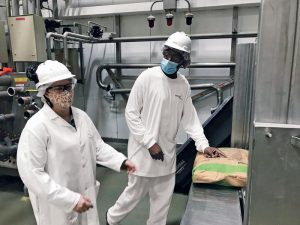
Why Strong Technicians are the Key to a Strong Biotech Business
What it means to be a strong business
When measuring the strength of a business, there are nearly limitless metrics available to measure strength. Sales figures, capital, market share, and product design are common gauges used to gain an insight into the health and traction of an organization. There is one variable that underpins all others, however. All other indicators of strength rely on the people involved in the process. There cannot be sales figures without salespeople just as a good product needs good engineers.
What is a technician?
According to the Merriam Webster dictionary, a technician (or tech) is “a specialist in the technical details of a subject or occupation”. While this definition may seem vague, it really captures the essence of what it means to be a tech. It is the duty of a technician to learn an assigned process front to back and to reliably and efficiently execute that process. Almost every industry utilizes technicians in one form or another.
In the biotech space, technicians can commonly be found in three critical departments: Research, Quality, and Production. A research tech usually conducts experiments, collects data, and assists scientists. Techs in the quality field normally perform quality control testing and assist with inspections and audits. Technicians in production are the ones that make products and maintain the means by which products are made.
From the above examples, technicians are more than just the “grunts” of an organization as they are commonly referred to. They are the ones who must be relied on to carry out a company’s plans.
Why are they important?
When a scientist designs an experiment, they may not always have the bandwidth to perform it, especially when multiple repetitions are needed for statistical significance. Their efforts are normally bound to analyzing and interpreting the data generated from the experiments or designing the next one. Good technicians are a boon to scientists because they create a division of labor where the scientist is now free to focus on the tasks that best utilize their skills and body of knowledge.
The role of a technician becomes a critical lynchpin when they are trusted to carry out sensitive tasks in a way that the scientist can be assured of quality work with a high degree of repeatability. This symbiotic relationship applies to all divisions of an organization at every level. A production manager cannot balance the need to plan and report manufacturing metrics while assembling the product. Instead, they rely on highly skilled technicians to carry out work instructions and meet production quotas.
What makes a good tech?
With so much riding on the need to build a team of capable technicians, it is crucial to select candidates who will be a proper fit for the role. Educational and experience requirements for a technician may vary wildly depending on the role. Some positions may require basic aptitude while others may need decades of experience or an advanced degree. It all depends on the needs of the organization.
On the other hand, it is important to select a candidate who best fits the requirements, not necessarily the one with the best credentials. The applicant with a master’s degree may sound appealing, but they may quickly become bored working on an assembly line. Besides specific job requirements, there are some traits common to effective technicians in any industry. The most beneficial trait for a technician to possess is a meticulous attention to detail. In this specific case, attention to detail refers to the ability to thoroughly follow directives for a process. These are normally communicated in the form of standard operating procedures (SOPs) or work instructions.
The ability to adhere to these documents is paramount. Failure to follow instructions in detail not only leads to an increase in mistakes and cycle times but can also cause regulatory headaches when documented procedures are not being followed. Another desirable skill is creativity. A good technician does not just receive and follow orders. Being the one that executes a process, they are in a unique position to look at the process in granular detail. A good tech should be able to find room for improvement in their assigned duties.
Optimizing processes at this level helps drive change and is often the seed for a company-wide culture of continuous improvement. One last trait found in effective technicians is the drive to “Be an expert”. A technician who has the initiative to learn more about the science or philosophy behind their duties is a powerful force when looking at the strength of a business. A tech who is an expert in their field is equipped to drive change and think out of the box when troubleshooting issues leading to a much more resilient and dynamic organization.




